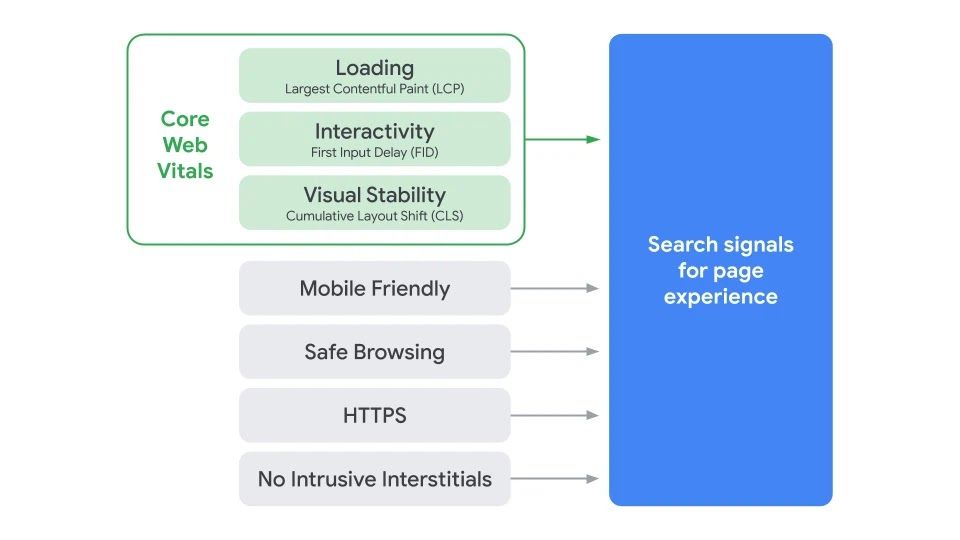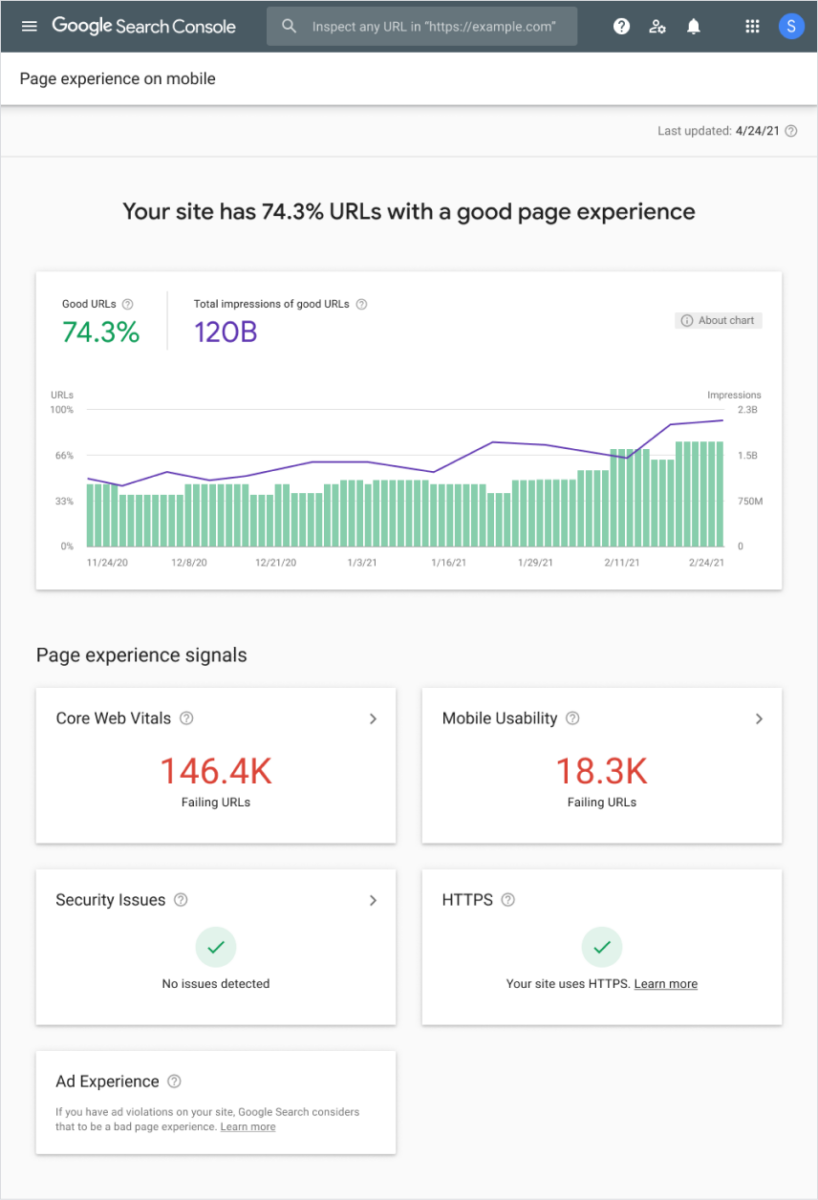Update 2 (04/19/2021 @ 02:34 PM ET): Google has provided more details on the rollout of page experience ranking in Search. Click here for more information. The article, as published on May 28, 2020, is preserved below.
Google Search is responsible for a huge amount of web traffic. Anyone that runs a website knows how important it is to rank highly on Google. So it's always a very big deal when the company changes the way it ranks websites. Today, Google announced a new ranking algorithm that will start taking "page experience" into consideration (via Search Engine Land).
"Page experience" is all about how users perceive the experience of interacting with a webpage. Simply put, if Google thinks people don't enjoy using a website, it will not rank it as highly in Search results. There are a number of metrics and considerations used to understand how a user perceives the experience.
Some of these considerations include page loading speed, interactivity, and the stability of content as it loads. Google calls these things "Core Web Vitals." In addition, Google is using some existing signals, including mobile-friendliness, safe-browsing, HTTPS, and intrusive ads. All of these things together make up the "page experience" secret sauce.
If you've ever accidentally tapped the wrong thing because content on the page was jumping around, that's something Google Search would consider a bad experience. It's important to note, however, that page experience isn't the only thing that matters when it comes to ranking. The company says it will still rank pages "with the best information overall, even if some aspects of page experience are subpar." In other words, delivering the information that the user is looking for is still ultimately the goal. But if there are pages with similar content, page experience becomes a differentiating factor.
Google says these changes will not be going live this year. The company will give 6-months notice before they go live sometime in 2021. If you have a website, it's time to get ready for the changes.
Update: Google Search rankings to use page experience from May 2021
In a post on the Google Webmaster Central Blog yesterday, Google announced that the page experience signals they'll be using to determine Google Search rankings will roll out in May 2021. In addition, the changes for non-AMP web content to become eligible to appear in the Top Stories feature in Search for mobile devices will also roll out in May 2021. Google says that any page that meets the Google News content policies will be eligible, but Search will prioritize showing pages with "great page experience", regardless of whether or not they're implemented with AMP or not. Finally, Google says they're planning to test a visual indicator that identifies pages that "have met all of the page experience criteria." If this test is successful, Google will show this visual indicator for search results in May 2021.
Google recommends publishers get ready for these changes now by conducting a site-wide audit of pages using the Google Search Console's report for Core Web Vitals followed by using Page Speed Insights and Lighthouse to fix any issues that are uncovered.
Update 2: Gradual rollout begins June, New Page Experience report available
In a new blog post, Google has announced a few new key details about its plan to use page experience signals to rank web pages in Google Search. First of all, the company will begin using page experience for rankings starting in mid-June 2021 but won't fully use these new signals until the end of August. What this means is that page experience will start factoring into Google Search results in the middle of June and its weight in the overall algorithm will slowly increase until the end of August. Google says this will hopefully give webmasters enough time to make refinements.
To provide page owners with more actionable insights, Google is unveiling a new Page Experience report in the Google Search Console. This report "combines the existing Core Web Vitals report with other components of the page experience signals, such as HTTPS security, absence of intrusive interstitials, safe browsing status, and mobile friendliness." It also offers "valuable metrics, such as the percentage of URLs with good page experience and search impressions over time."
To learn more about the upcoming changes, visit Google's FAQ page for Core Web Vitals & Page Experience.



